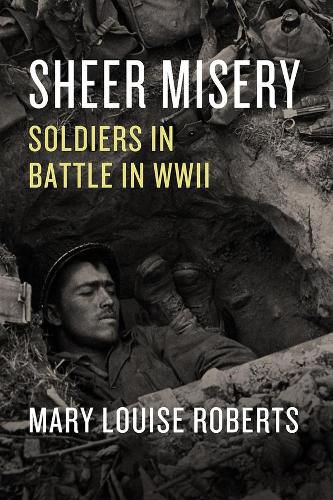Readings Newsletter
Become a Readings Member to make your shopping experience even easier.
Sign in or sign up for free!
You’re not far away from qualifying for FREE standard shipping within Australia
You’ve qualified for FREE standard shipping within Australia
The cart is loading…






Marching across occupied France in 1944, American GI Leroy Stewart had neither death nor glory on his mind: he was worried about his underwear, which was engaged in a relentless crawl of its own. Similar complaints of physical discomfort pervade infantrymen’s memories of the European theater, whether the soldiers were British, American, German, or French. Wet, freezing misery with no end in sight-this was life for millions of enlisted men during World War II.
Sheer Misery trains a humane and unsparing eye on the corporeal experiences of the soldiers who fought in Belgium, France, and Italy during the last two years of the war. In the horrendously unhygienic and often lethal conditions of the front line, their bodies broke down, stubbornly declaring their needs for warmth, rest, and good nutrition. Feet became too swollen to march, fingers too frozen to pull triggers; stomachs cramped, and diarrhea stained underwear and pants. Turning away from the accounts of high-level military strategy that dominate many WWII chronicles, acclaimed historian Mary Louise Roberts instead relies on diaries and letters to bring to life visceral sense memories like the moans of the screaming meemies, the acrid smell of cordite, and the shockingly mundane sight of rotting corpses. As Roberts writes, For soldiers who fought, the war was above all about their bodies.
$9.00 standard shipping within Australia
FREE standard shipping within Australia for orders over $100.00
Express & International shipping calculated at checkout
Marching across occupied France in 1944, American GI Leroy Stewart had neither death nor glory on his mind: he was worried about his underwear, which was engaged in a relentless crawl of its own. Similar complaints of physical discomfort pervade infantrymen’s memories of the European theater, whether the soldiers were British, American, German, or French. Wet, freezing misery with no end in sight-this was life for millions of enlisted men during World War II.
Sheer Misery trains a humane and unsparing eye on the corporeal experiences of the soldiers who fought in Belgium, France, and Italy during the last two years of the war. In the horrendously unhygienic and often lethal conditions of the front line, their bodies broke down, stubbornly declaring their needs for warmth, rest, and good nutrition. Feet became too swollen to march, fingers too frozen to pull triggers; stomachs cramped, and diarrhea stained underwear and pants. Turning away from the accounts of high-level military strategy that dominate many WWII chronicles, acclaimed historian Mary Louise Roberts instead relies on diaries and letters to bring to life visceral sense memories like the moans of the screaming meemies, the acrid smell of cordite, and the shockingly mundane sight of rotting corpses. As Roberts writes, For soldiers who fought, the war was above all about their bodies.